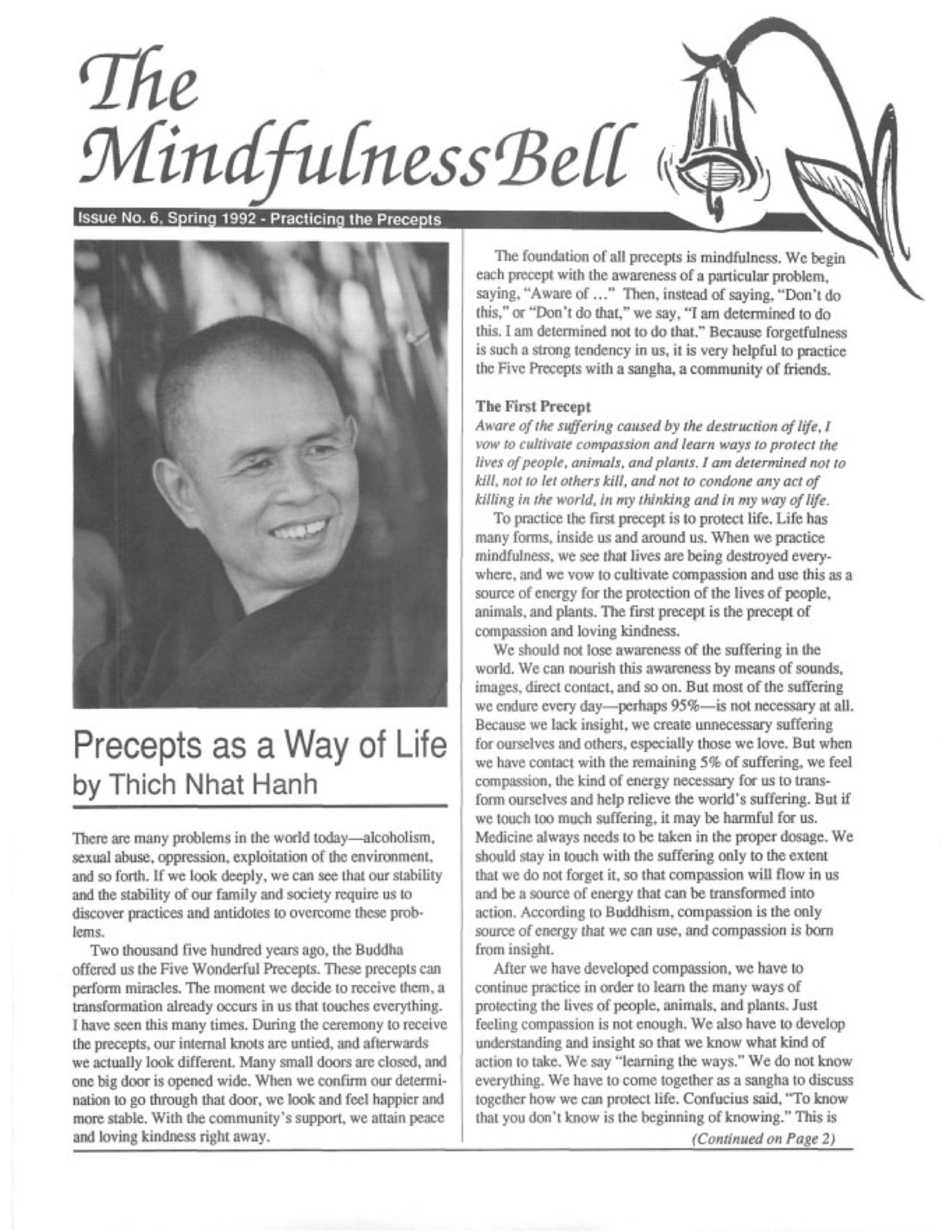On a Day of Mindfulness last spring, a sangha member spoke of her trepidation concerning an ambitious summer plan. Her work was to prepare a theater project for a large number of children in a summer camp that could be worked on the whole season. “How can I keep everything from becoming chaotic?” she asked. I brought out a small bell I had brought back from Japan and said, “This is a magic bell. It can guide you and the children through the whole summer if used with care.”
On a Day of Mindfulness last spring, a sangha member spoke of her trepidation concerning an ambitious summer plan. Her work was to prepare a theater project for a large number of children in a summer camp that could be worked on the whole season. "How can I keep everything from becoming chaotic?" she asked. I brought out a small bell I had brought back from Japan and said, "This is a magic bell. It can guide you and the children through the whole summer if used with care." And I explained to her some of Thay's teachings on how she and the children could find peace and joy being together with the bell.
Toward the end of July, Judith wrote me this letter:
"The bell has played so significant a role in our experience that it found its way into a starring role of one of the stories. 'The Lost Bell,' written by seven and eight-year-olds, tells the tale of a Japanese empress who is visited by a boy and his fierce dragon. All the land is thrown into chaos and civil war by the appearance of the dragon! But the land and the people are saved by (you guessed it) the bell—the empress' magic bell—which is temporarily lost and then recovered by a group of 'peace people.' When she invites it to ring, everyone stops fighting to take three deep, peaceful breaths! The second time she rings the bell, the dragon vanishes 'back to the place where dragons live.' They say the bell makes 'the most beautiful sound in the world.'
I felt as though I had been given a vacation just reading her wonderful letter.
P. Dai-En Bennage
Muncy, Pennsylvania

